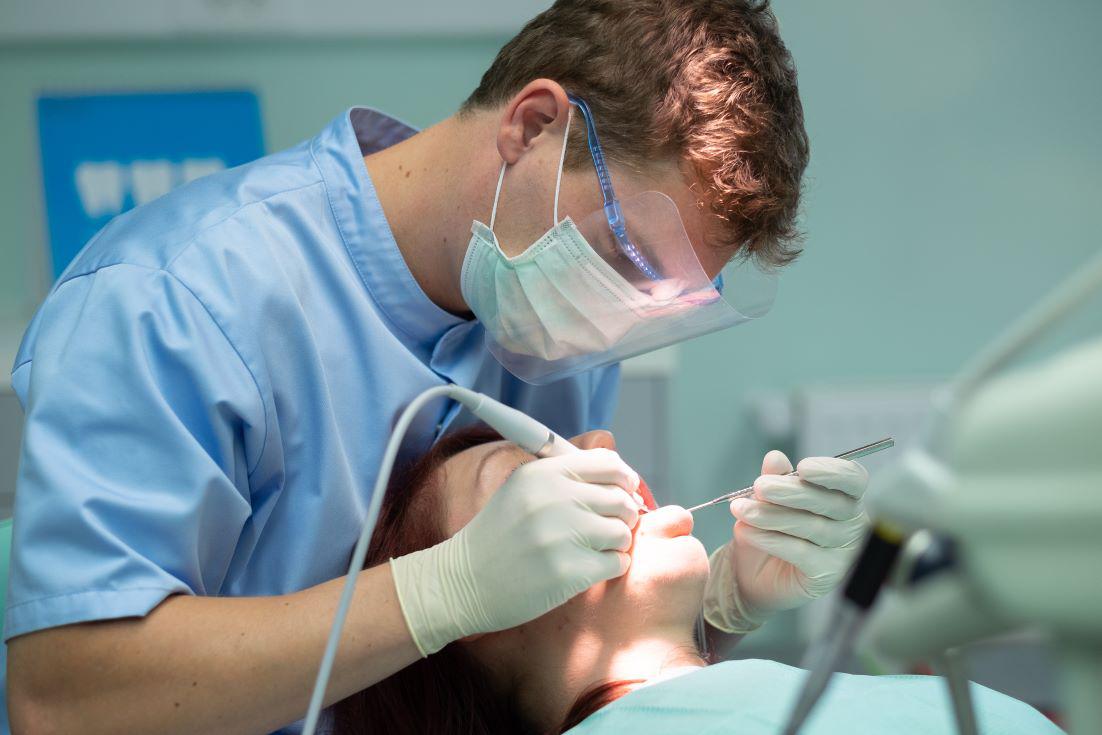 Something as small, and seemingly insignificant as plaque can wreak havoc on your oral health. In fact, failing to properly and continually remove plaque on your teeth can result in tooth extraction. Yikes!
Something as small, and seemingly insignificant as plaque can wreak havoc on your oral health. In fact, failing to properly and continually remove plaque on your teeth can result in tooth extraction. Yikes!
The good news is that teeth don’t go directly from plaque buildup to tooth extraction. When plaque builds up on the teeth, it takes between 24-72 hours to turn into tartar (a hardened substance that must be professionally removed). When tartar isn’t removed, the bacteria eats away at the tooth enamel, creating cavities, and forms pockets along the gum line, resulting in gum disease. Tooth extraction may be necessary when cavities and gum disease aren’t treated in the early stages.
Thankfully, several simple and effective oral hygiene habits can help you avoid dental extraction. Of course, your local dentist is also an essential part of gaining and maintaining optimal oral health.
Here are five ways to effectively remove plaque on your teeth to avoid the need for tooth extraction:
1. Brush daily
You’ve heard it since you were little– brushing your teeth every day is essential. Most people know and understand this, but they rarely think about how often and how they should brush their teeth.
Typically, dentists recommend that people of all ages brush their teeth twice a day– once in the morning (before or after breakfast) and once in the evening (after dinner). However, people who suffer from chronic gum disease or tooth decay may want to brush three times a day.
How you brush your teeth could be the difference between having a healthy smile and needing a tooth extraction. Here are the most useful tooth-brushing tools and the most effective method:
- Use a soft-bristled manual or electric toothbrush
- Use fluoride toothpaste
- Brush for at least two minutes each time
- Use circular motions to gently scrub the front, back, and chewing surfaces of each tooth
2. Floss daily
Unfortunately, toothbrushes cannot clean between two teeth. Hence the need for floss! Tartar often forms between teeth because most people rarely floss. If you are one of those people, here are some tips to motivate yourself to floss more often:
- Choose a convenient time. Flossing doesn’t have to occur at night. As long as you floss once a day at the same time every day, it should be effective. So, if you don’t want to add one more thing to your nightly routine, floss in the morning.
- Don’t use traditional string floss. Many people struggle to properly use string floss. There are other options. Use a water flosser or floss picks to make flossing faster and easier.
- Understand the benefits. Flossing helps prevent cavities, gum disease, bad breath, and may even help you maintain a healthy heart.
3. Chew sugar-free gum.
While sugary gum can be a detriment to your oral health, sugar-free gum can benefit your oral health. Some types of sugar-free gum contain xylitol, a naturally-occurring sweetener found in vegetables and fruits. Unlike with sugar, the bacteria in the mouth expels the xylitol after absorption rather than using it to reproduce.
Chewing sugar-free gum can also help remove plaque and increase saliva production– both of which are beneficial to your oral health.
4. Reduce your sugar and starch intake.
The bacteria in your mouth love sugar and starch (like most of us!). Sadly, eating too much of these can lead to an overgrowth of bad bacteria, causing plaque and tartar to form more rapidly.
To avoid this issue, pay close attention to your daily diet. Do you start your morning off with a sugary coffee and bagel? Opt for sugar-free syrups in your coffee and egg bites instead! Your teeth and the rest of your body will thank you.
If you do eat or drink something that contains sugar and starch, be sure to drink plenty of water between bites and sips and brush your teeth afterward.
5. Visit your dentist every six months.
Even if you abide by all of these rules, plaque and tartar may still linger in some of the hard-to-reach areas of the mouth. However, six-month professional dental cleanings can take care of it. This involves using professional-grade toothpaste, professional tools, and professional methods to clean all surfaces of the hard and soft tissues of the mouth.
During these appointments, our team also checks for plaque and tartar buildup, cavities, gum disease, oral cancer, and other oral health issues. We also answer questions patients have about caring for their smiles, achieving an aesthetically pleasing smile, and how to help their children achieve and maintain optimal oral health.
Schedule Your Dental Cleaning Today
If it has been more than six months since your last dental cleaning, call us today to schedule your appointment. We will gently and thoroughly remove plaque and tartar from your teeth so you can avoid tooth extractions in the future.

